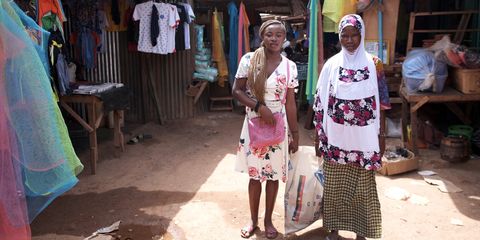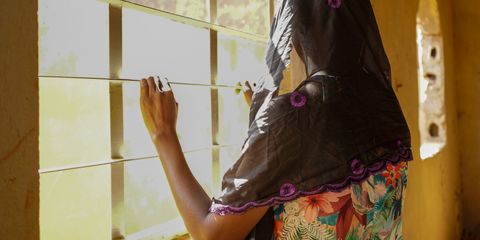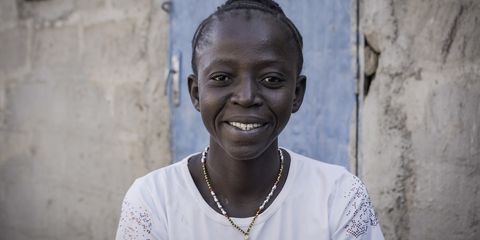In crisis-affected Burkina Faso, Bernadette is helping displaced girls learn new skills and earn an income so they can settle into their new homes.
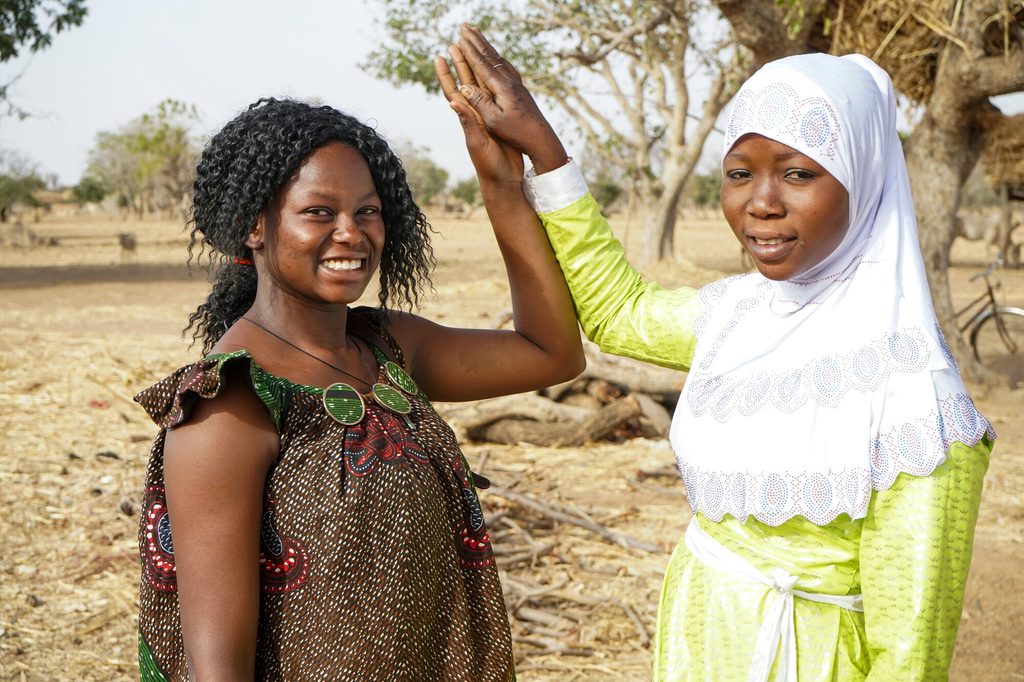
Bernadette, a 23-year-old youth leader from a host community has befriended a group of displaced girls living in a town in the Centre-East of Burkina Faso.
She is a member of our partner association Jeunesse sans Frontières, and participates in a project set up to support young people and adolescent girls in crisis as part of the humanitarian response in the Central Sahel.
New skills for displaced girls
Today, Bernadette is visiting one of the displacement sites in the town to teach girls how to produce liquid soap, which they can use to manage their personal hygiene or sell to earn an income. Along with other young people from the association, Bernadette starts her soap making workshop which is attended by 15 girls aged 18 to 24.
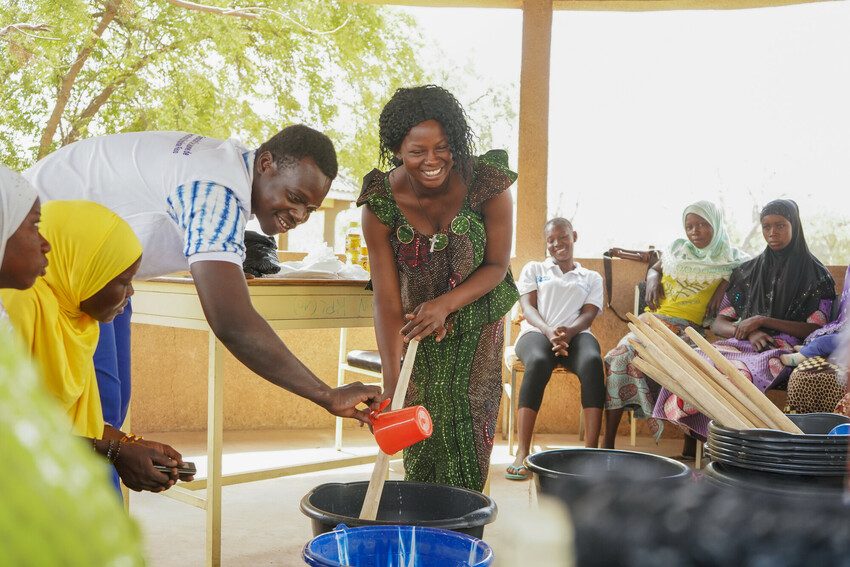
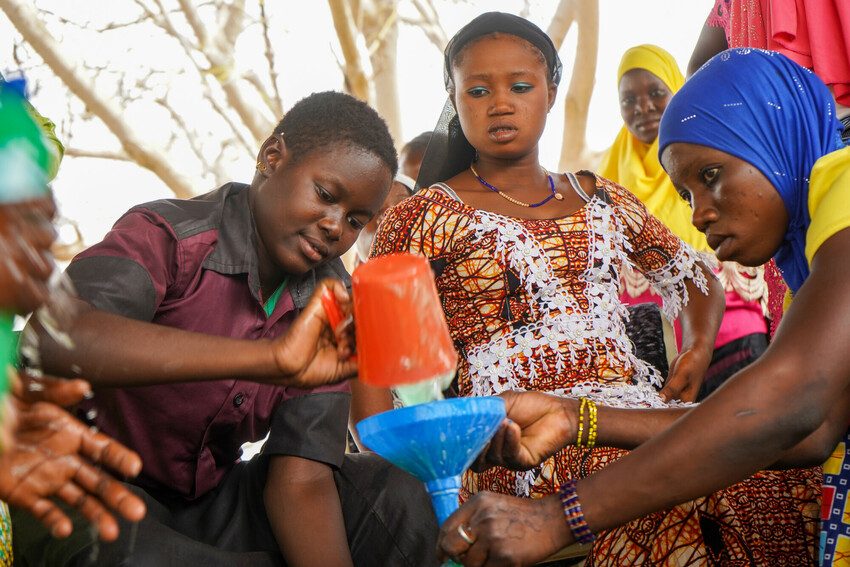
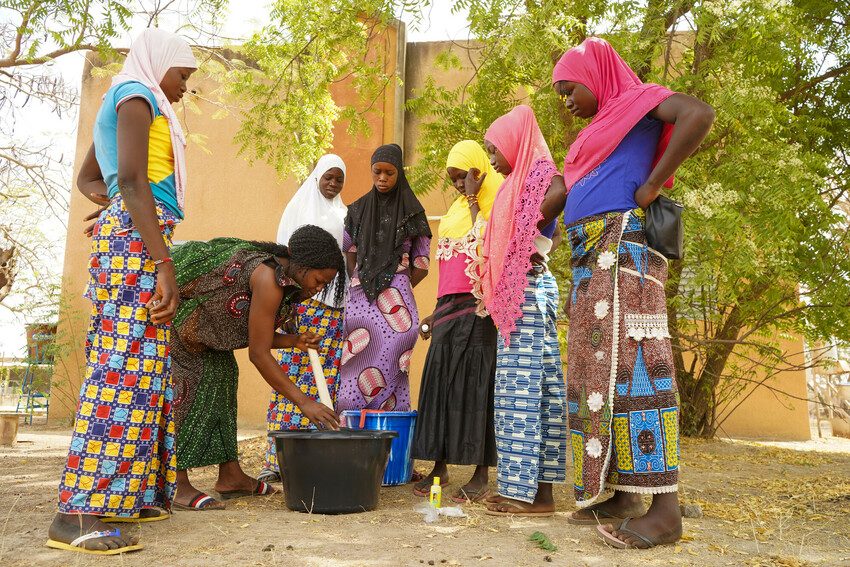
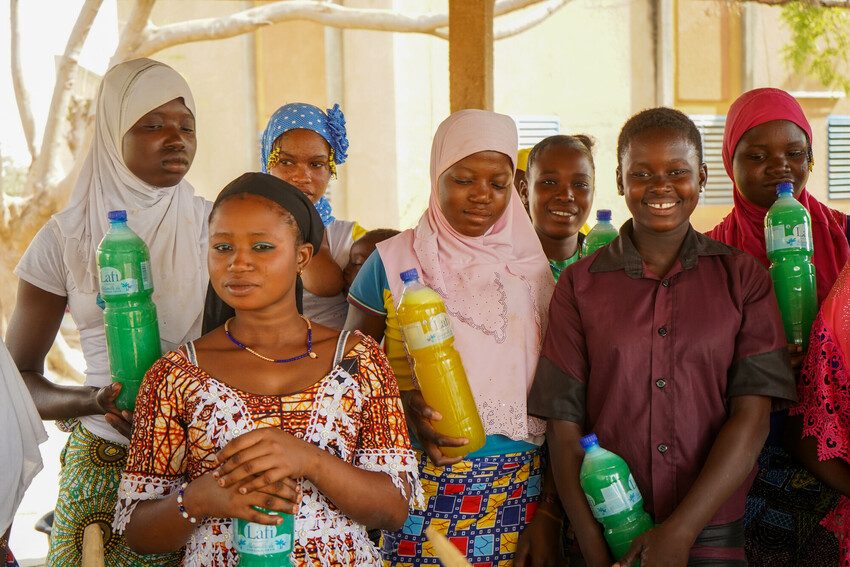
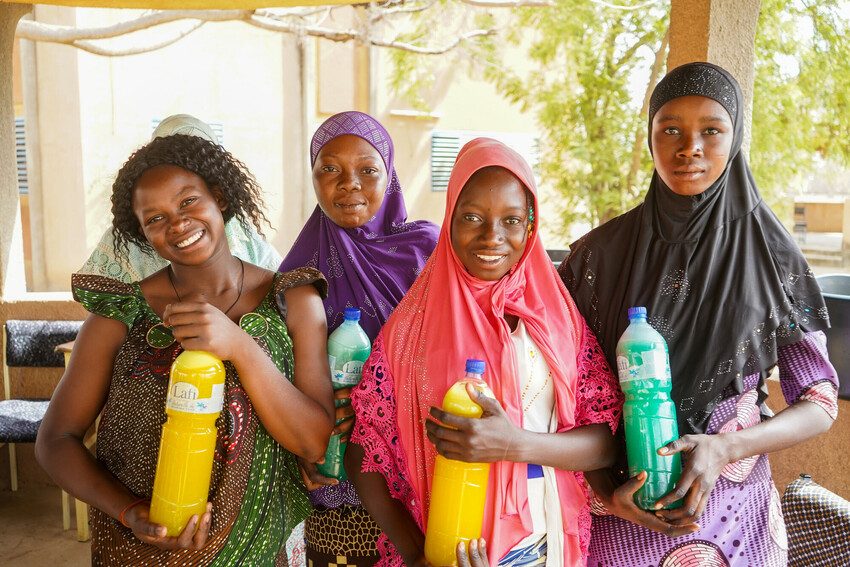
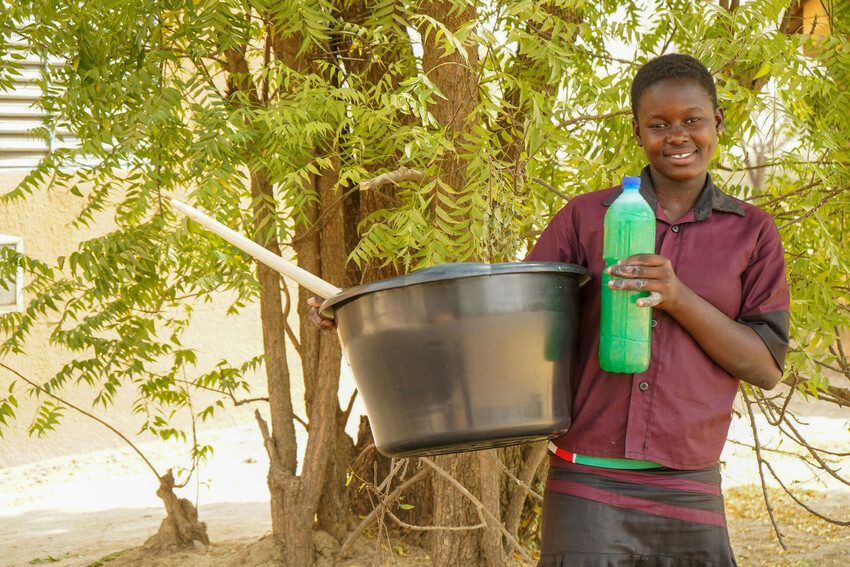
“The aim is to enable them to earn some money by producing and selling liquid soap, and by doing so reduce their expenses, since they will no longer have to buy soap for their own needs,” Bernadette tells us. “We explain to them the ingredients needed to make liquid soap, and hold a practical training session.”
“They should be trained in income generating activities, because when you teach someone to fish, you feed him or her for a lifetime.”
Bernadette
At the end of the activity, each girl goes home with a bucket and a spatula, the main tools they will need to start their soap making venture.
“The production of liquid soap will allow me to have soap for washing clothes and dishes,” says Jemima, 18, one of the girls who took part in the training. “I will also be able to sell it to make money.”
In the past years, Bernadette and the other members of her association have carried out many activities to help internally displaced people in the city, especially girls: “We have organised talks on the promotion of girls’ rights, on gender-based violence, on women’s empowerment, and we have also carried out activities to support the political engagement of girls.”
More support needed for internally displaced communities
Bernadette would like to see more action in favour of internally displaced people: “They should be trained in income generating activities, because when you teach someone to fish, you feed him or her for a lifetime.”
The mother of a baby boy, Bernadette has another idea for an activity to help young, displaced mothers: “I would like to teach them how to make porridge so they can feed their children better, it is a nutritious porridge that does not cost much to cook.”
Having gone to school with many internally displaced students and becoming friends with several, Bernadette tells us that she has an affinity for the community. “I feel close to them, we often visit them at their site. Some of them call me when they have problems. We try to find solutions and give them advice. We talk a lot. Like all girls, they have dreams that they would like to achieve one day, despite their situation.”
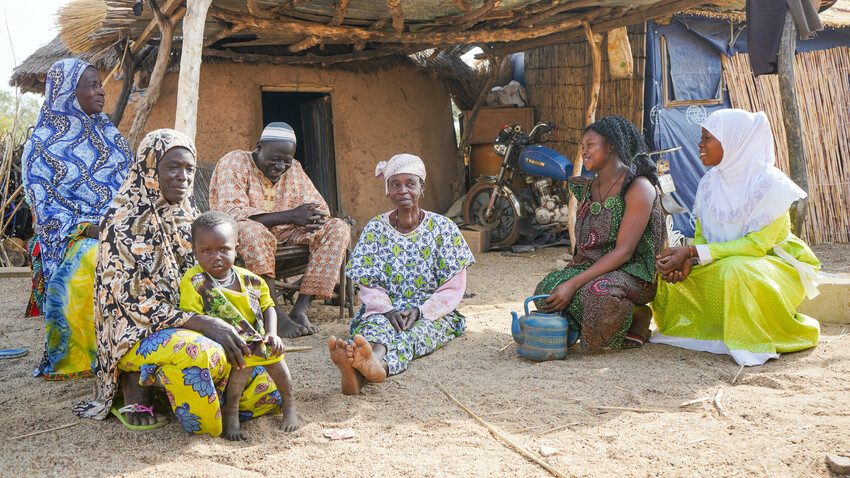
When asked about her ideas for dealing with the unprecedented crisis her country has been going through since 2019, Bernadette says: “Youth are key to changing things. We must really involve youth. We must all work together to find peace because this situation can spread to other regions if nothing is done. The message I have for everyone is that we are all different but we have the world in common and we need peace to build this world.”
About our intervention
The regional capital of the Centre-East region is now accommodating around 8,300 people who have been displaced by the ongoing conflict according to official data. This region is one of the areas covered by the project “Youth and Adolescent Girls in Crisis in the Central Sahel Response” funded by Plan Børnefonden and implemented by Plan International and its partners in Burkina Faso, Mali and Niger.
This project supports young people, especially girls and young women, working with them through their own associations, by increasing economic and social assets, improving social cohesion, adaptation to climate change, and strengthening gender transformation.

